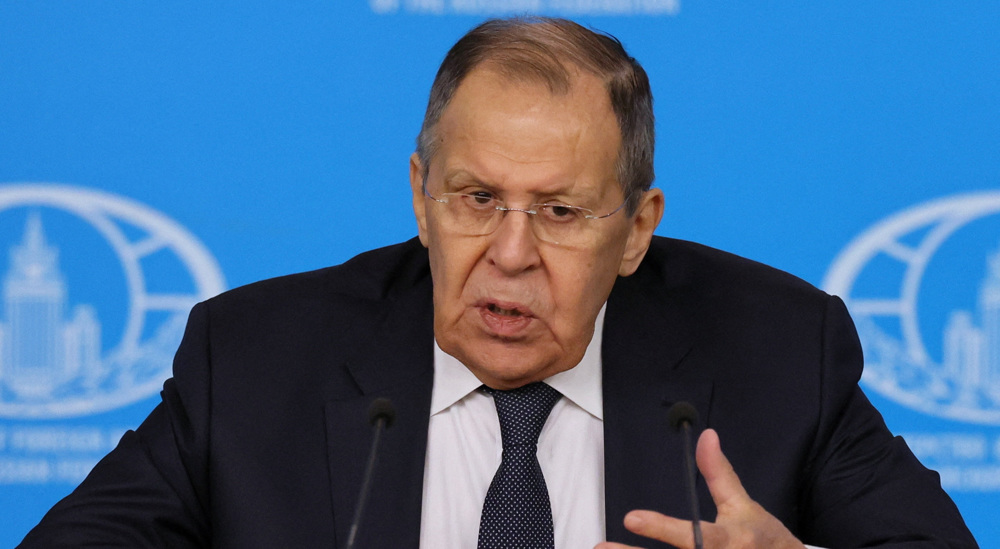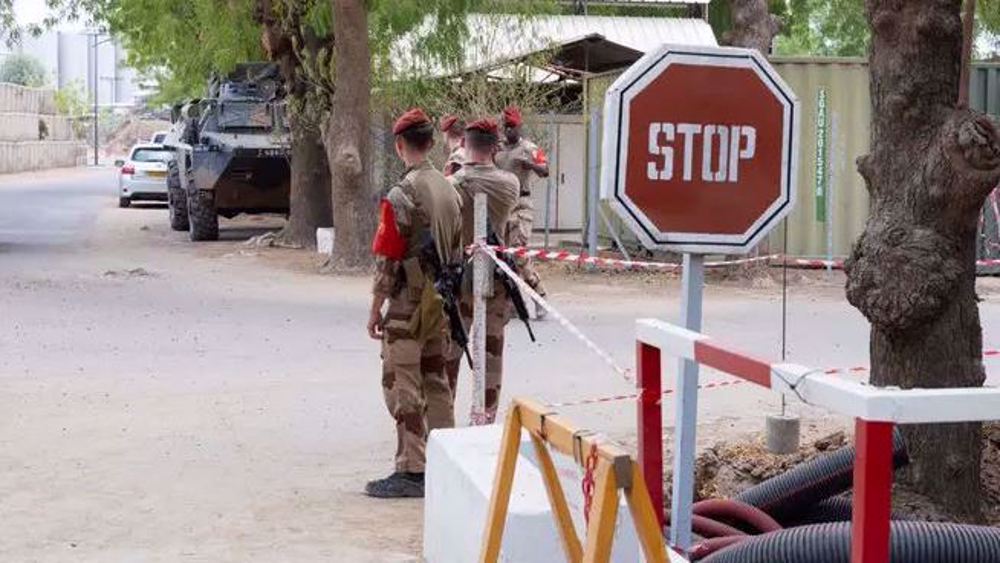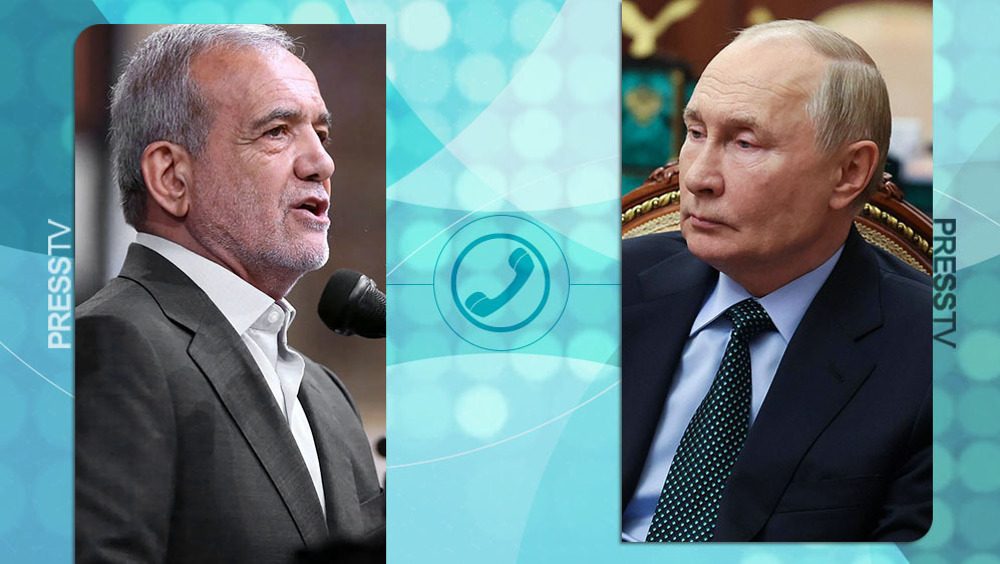Russia welcomes US plans to pull back thousands of troops from Germany
Russia has welcomed US plans to pull out thousands of its troops from Germany, saying the move could help easing military and political tensions in Europe.
Russian Foreign Ministry spokeswoman Maria Zakharova said on Thursday that Moscow “would welcome any steps by Washington to scale down its military presence in Europe.”
“Such steps would undoubtedly help reduce confrontational potential and ease military and political tensions in the Euro-Atlantic region,” Zakharova said.
A report, published by the Wall Street Journal last week, said US President Donald Trump was considering pulling out some 9,700 troops from Germany, which currently hosts some 34,500 US troops.
Zakharova warned Washington against sending some of the troops from Germany to Poland, warning it would further exacerbate tensions between the Kremlin and the White House.
Moscow, which has repeatedly warned the US against deploying NATO forces near its borders, said any increased military presence in Poland could provoke Russian retaliation and prompt it to step up its military presence in neighboring Belarus.
Zakharova also called on Washington to take its tactical nuclear weapons home from Germany.
Russia has repeatedly warned the US and its NATO military allies against conducting “provocative” war games near its borders.
US bombers and spy planes, as well as NATO aircraft, have frequently been detected in the vicinity of Russia’s borders in recent years.
Russia's Baltic Fleet said a dozen Su-24, Su-27 and Su-30 aircraft conducted training missions over the Baltic Sea in parallel with NATO's drills in the region on Thursday.

It did not clarify how close to each other the parallel drills were being held.
The US military presence has increased in the region since 2014, when Crimea rejoined Russia following a referendum and the ongoing military conflict in eastern Ukraine broke out.
The West brands the reunification as annexation of Ukrainian land by Russia which strongly rejects the allegation.
In siding with Ukraine, the European Union has followed Washington's lead in leveling several rounds of sanctions against Moscow.
US diplomat confirms Trump's withdrawal plan
On Wednesday, the outgoing US ambassador to Germany Richard Grenell said, “No one should be surprised that Donald Trump is pulling troops and bringing them home.”
“There has been a lot of discussion,” he said, adding there will “still be 25,000 soldiers in Germany, that’s no small number.”
German Government spokeswoman Ulrike Demmer confirmed the report, saying ministers had been informed of the plan, but she was not aware that a final decision had been made.
According to German media, Trump made the decision after Chancellor Angela Merkel declined to attend the Group of Seven (G7) summit, citing the coronavirus pandemic.
Trump will be hosting this year's gathering.
Grenell, however, dismissed the reports, saying the discussion about reducing the number of troops in Germany had begun in August and September last year.
The plan is in contrast with the US commitment to Europe under the North Atlantic Treaty Organization (NATO), whose priority in Europe used to be strengthening its eastern flank against Russia.
Trump has repeatedly criticized NATO members, Germany in particular, that have failed to hit a target of spending 2 percent of their gross domestic product (GDP) on their military.
The emergence of the plan to pull US troops out of Germany has now caused concerns in Europe, particularity in Berlin, about the fraying of the military alliance under the Trump administration.
The US president had already warned that Washington would “go its own way” if the allies failed to meet his requirements.
French President Emmanuel Macron had described the US-led military alliance as strategically and politically defunct, warning Europeans that they could no longer rely on America to defend NATO allies.
“What we are currently experiencing is the brain death of NATO,” Macron said, adding it was high time for Europe to “wake up.”
US, German crisis deeper than planned military cuts
An article published on Bloomberg said the crisis between Berlin and Washington goes deeper than the current withdrawal plan.
It said that Washington’s “strategically nonsensical” move “reflects some of the pettiest and most destructive impulses of Trumpism, and reveals the deepening rot in America’s most important European relationship.”
“Trump’s decision didn’t come out of nowhere,” it wrote. "The Pentagon has been studying the possibility of redeploying US troops in Europe for some time."

It went on to say that the Trump administration has discussed shifting part of its permanent European presence to Poland, and in 2019 moved 1,000 troops there from Western Europe.
"Yet this doesn’t mean that the matter was well thought out, because it is hard to discern any meaningful strategic rationale behind Trump’s choice," said Bloomberg.
It "will take years, and a great deal of money, to turn Poland into anywhere near as reliable a hub for US forces as Germany is,” said the article.
“This is largely because there isn’t much existing infrastructure in that country for hosting a large American contingent,” it added.
VIDEO | 100+ days of ceasefire: Israeli killing of Palestinians continue amid Intl. silence and impunity
VIDEO | EU split over new Iran sanctions amid claims of double standards
VIDEO | Gaza’s silent plague: Mysterious virus claims lives amidst total medical collapse
VIDEO | Growing transatlantic rift
VIDEO | Trump's Iran blunders
Senior cmdr. strongly warns Trump following rhetorical remarks concerning Leader
EU Parliament halts US trade deal after Trump tariff threat
VIDEO | An unchecked presidency











 This makes it easy to access the Press TV website
This makes it easy to access the Press TV website